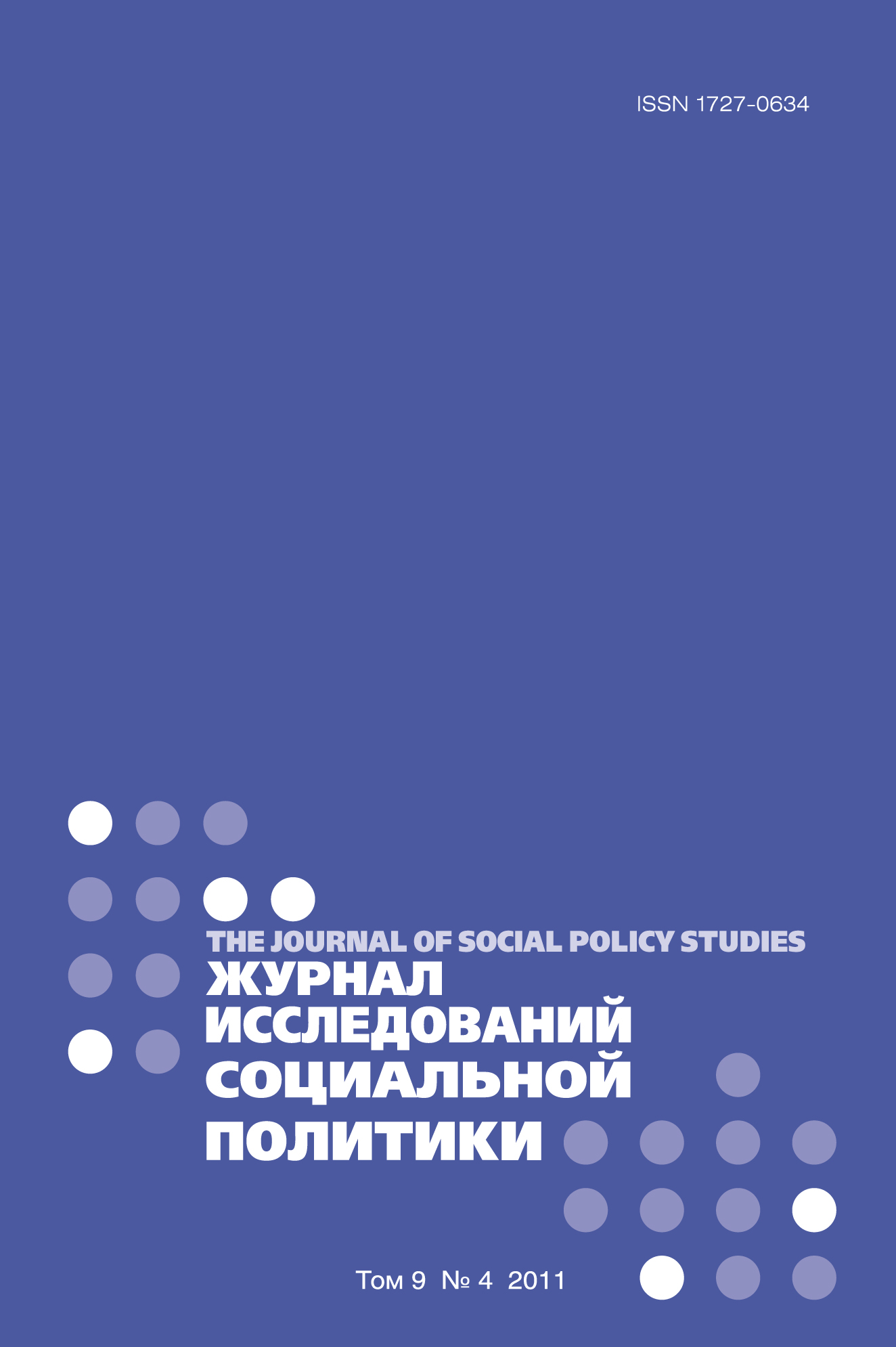The life and work balance concept: lessons from the European social policy and Russian perspectives
Abstract
The focus of this article is the work/life balance in contemporary European societies, both as a political problem and as a social experiment. Based on a review of national studies of demographic and policy trends, the concept of work/life balance is examined through an analysis of new forms of the ‘gender contract’, the intensification and extensification of labour, and various models of family life. A main element of the concept is labour, but the timing and combination of life events also plays a role; indeed, the concept is shown to have both synchronic and diachronic dimensions. For example, education, work and family events or obligations (e.g. getting a degree, having children, etc) may be carried out simultaneously, or their implementation may be prolonged over a longer period and ordered according to individual preference. The author argues that a diachronic frame of analysis is more suitable for the Russian context, where some Western European demographic trends – for example, having children at a later age – are becoming more prevalent.
The conclusion discusses the significance of the growth in popularity of the work/life balance in European societies, especially in governmental policy (e.g. the ‘Life Course Saving Scheme’ in the Netherlands, and the ‘Belgian Time Credit Scheme’ in Belgium). Although the concept is important even merely in terms of its rhetorical potential, its implementation in these kinds of socio-political policy experiments demonstrates its potential appeal as a life management approach for certain social groups. For example, this is particularly true of the growing middle classes in the Russian context, who seem more willing to experiment with different life trajectories. However, the author also concludes that the concept of work/life balance can hardly be held as justification for a governmental pronatalist bias, despite its potential to significantly increase fertility in certain social groups. It can, however, be viewed as a framework through which institutions can improve satisfaction with citizens’ ‘life project’ and has potential, in the long term, to improve quality of life for individuals.















